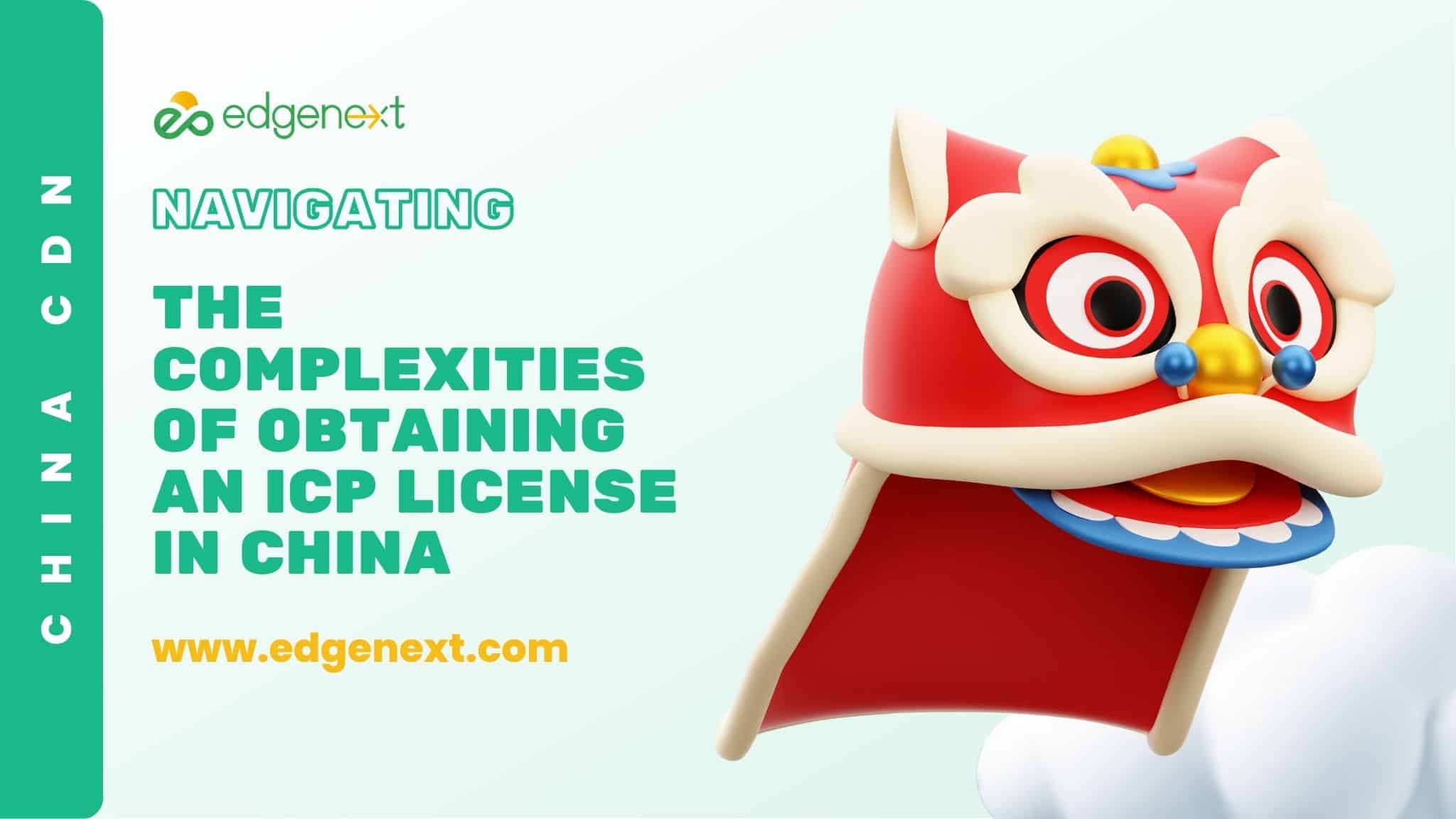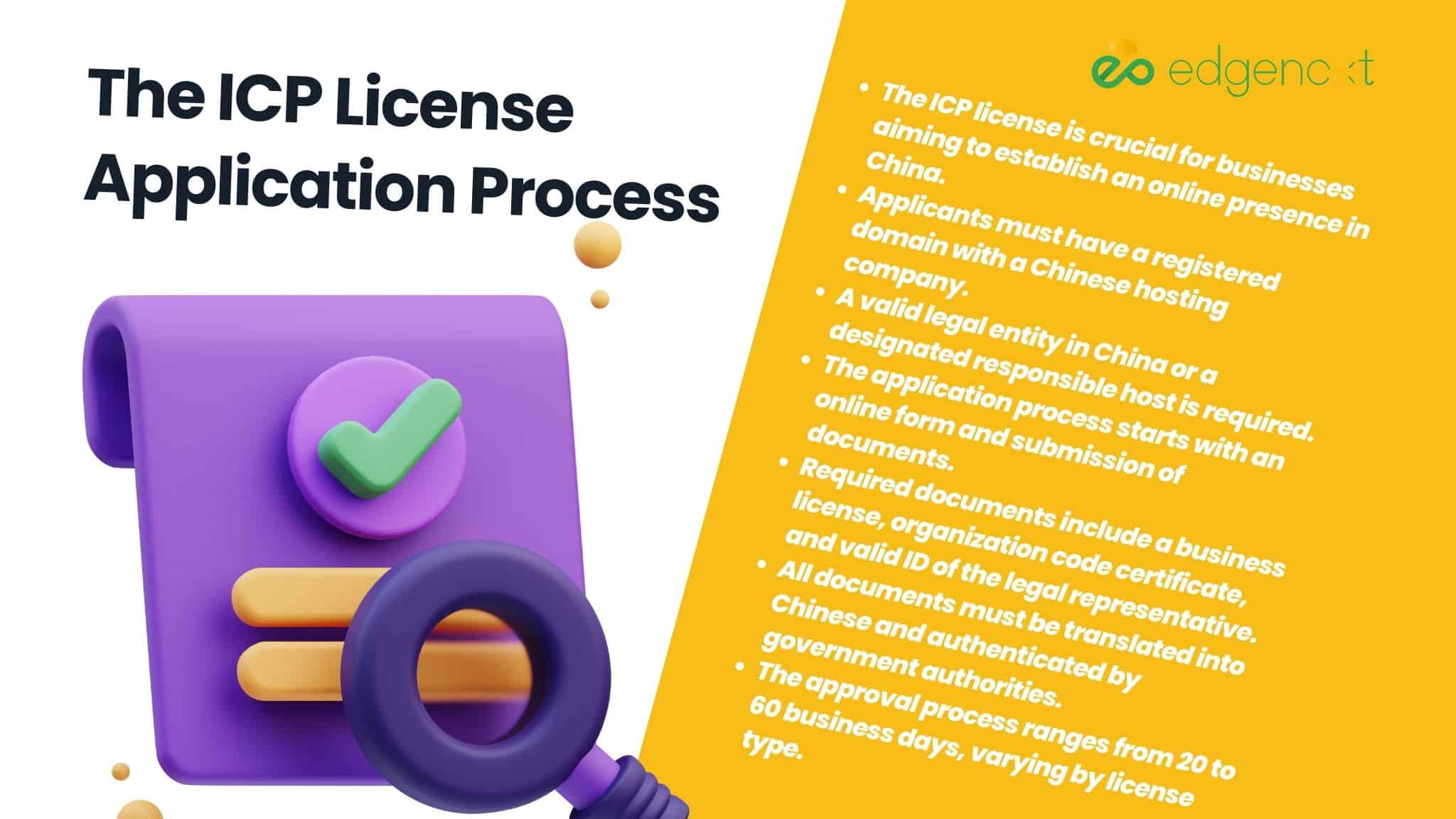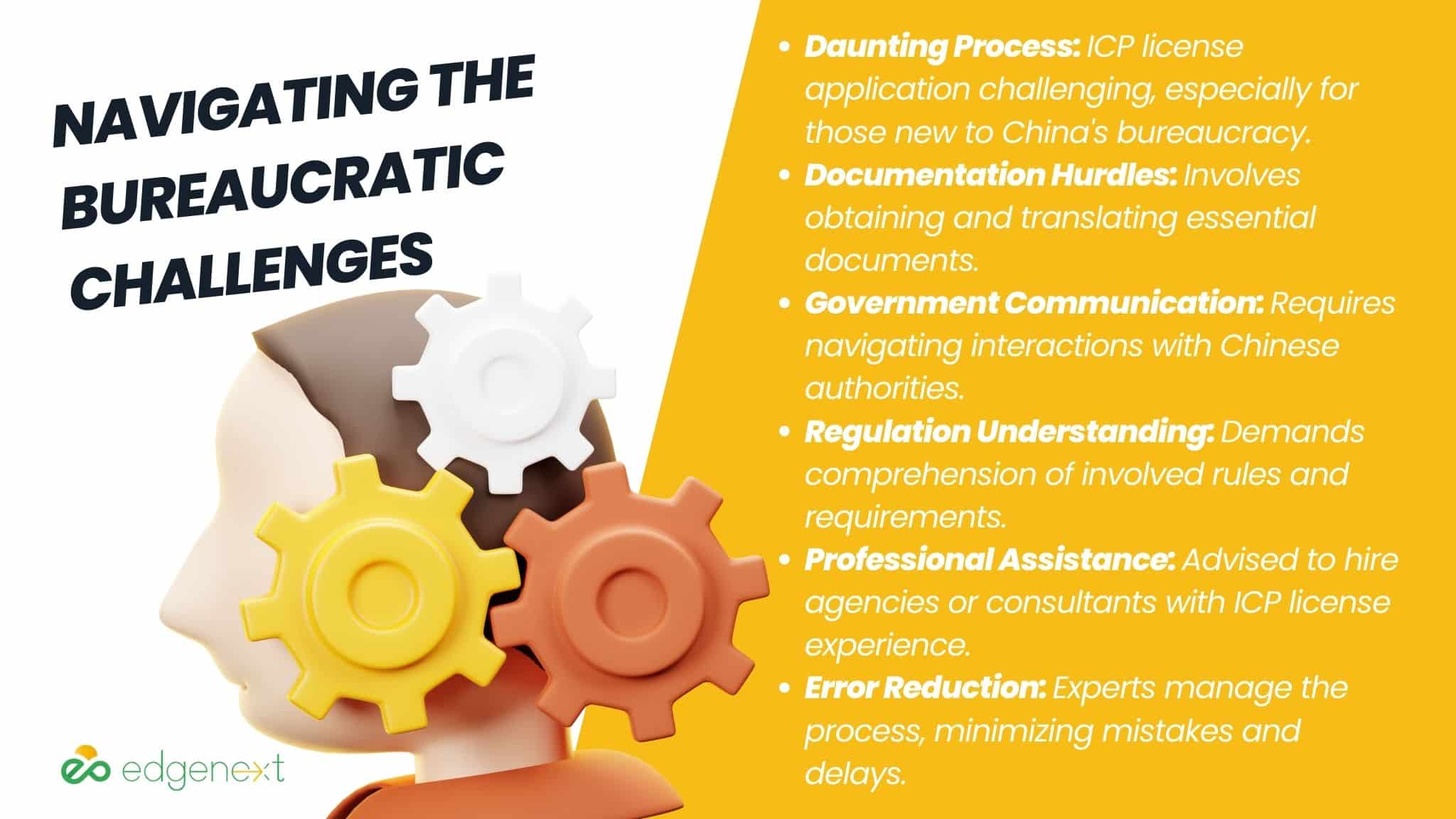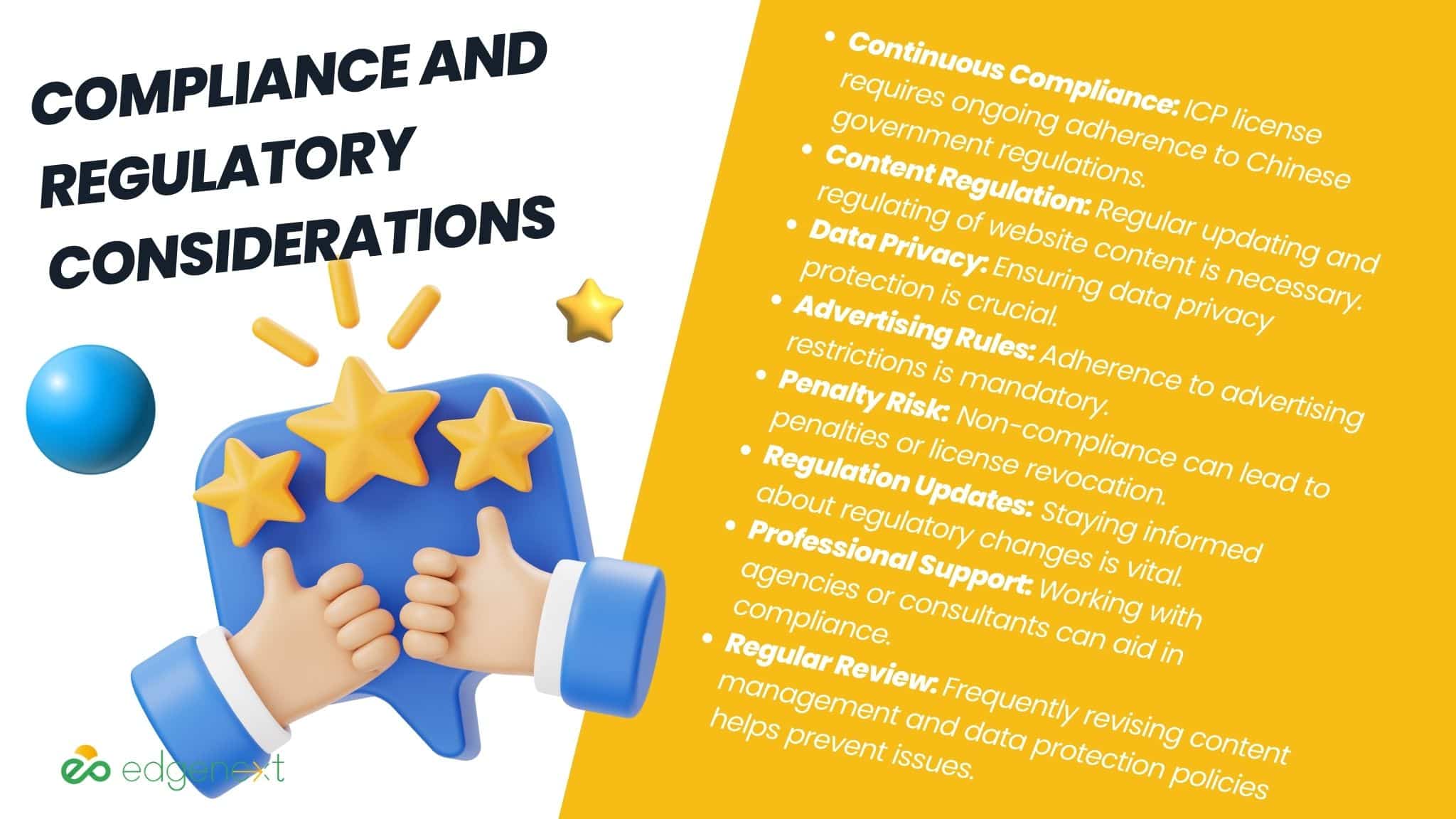
Obtaining an ICP (Internet Content Provider) license is critical for any business looking to operate a website in China. This process involves several key steps, including preparing necessary documentation, partnering with local entities, and navigating China’s unique bureaucratic challenges. Compliance with local regulations is mandatory, and the license must be renewed and updated regularly. While the process can be complex, understanding and adhering to these requirements is essential for successfully hosting and operating websites within China’s digital landscape.
The digital landscape in China has seen explosive growth in recent years, with a large percentage of the population having access to the internet. With such a vast market, it is no surprise that businesses and organizations are eager to establish an online presence in China. However, this can be a daunting task due to the country’s strict regulations on internet content. To legally host a website in China, companies must obtain an ICP license. In this guide, we will navigate the complexities of obtaining an ICP license and provide valuable insights for businesses looking to expand into the Chinese market.
An ICP (Internet Content Provider) license is a certificate issued by the Chinese government that allows individuals or organizations to host a website in China legally. There are two types of ICP licenses: ICP Filing and ICP Commercial License.
ICP Filing is required for all websites hosted within China, including those with commercial and non-commercial purposes. Smaller businesses or personal websites typically use this type of license.
ICP Commercial License, on the other hand, is required for websites that engage in e-commerce activities or generate revenue through advertisements. This license type is more difficult to obtain and involves stricter regulations and requirements.
To comply with Chinese laws and regulations regarding online content, an ICP license is mandatory for any website hosted in China. Failure to obtain an ICP license can result in fines, penalties, and even the website shutdown.

Obtaining an ICP license can be complex and time-consuming, but it is essential for businesses looking to establish a solid online presence in China. To apply for an ICP license, applicants must ensure they have a registered domain name with a Chinese hosting company. They must also have a valid legal entity in China or a designated host who will be responsible for the website’s content and operations.
Once these prerequisites are met, applicants can begin the application process by filling out an online form and submitting the required documentation, including a business license, organization code certificate, and a valid ID of the legal representative. It is important to note that all documents must be translated into Chinese and authenticated by government authorities. The approval process typically takes anywhere from 20 to 60 business days, depending on the type of ICP license being applied for.

The application process for an ICP license can be daunting, especially for businesses unfamiliar with the bureaucratic processes in China. Some common challenges include obtaining and translating necessary documents, navigating communication with government authorities, and understanding the regulations and requirements involved.
To streamline the approval process, seeking assistance from a professional agency or consultant with experience obtaining ICP licenses is recommended. They can provide guidance and handle the application process on behalf of the company, reducing the chances of errors or delays. Building a good relationship with government authorities and providing detailed and accurate information in the application can also help expedite the approval process.
To obtain an ICP license, foreign companies must have a local Chinese partner responsible for the website’s content and operations. This partnership fulfills the legal requirements and provides valuable insights and resources for businesses looking to enter the Chinese market.
When choosing a local partner or service provider, it is essential to thoroughly research their credibility and experience in handling ICP license applications. They should understand the regulations and requirements well and have strong communication skills to navigate the application process effectively. It is also recommended to consult with multiple potential partners before deciding. Overall, partnering with a reliable local entity can significantly assist in obtaining an ICP license and expanding your online presence in China.

Obtaining an ICP license is not a one-time process, as businesses must maintain ongoing compliance with the regulations set by the Chinese government. This includes regularly updating and regulating website content, protecting data privacy, and adhering to advertising restrictions. Failure to comply with these regulations can result in penalties or even revocation of the ICP license.
To ensure ongoing compliance, staying updated on any changes or updates in regulations is crucial. Working with a professional agency or consultant can help navigate these requirements and avoid potential violations. Additionally, regularly reviewing policies and procedures for content management and data protection can help maintain compliance and prevent issues with the ICP license.
Choosing the right hosting provider and Content Delivery Network (CDN) services is crucial for businesses seeking an ICP license. This is because the Chinese government has specific website hosting requirements, including local servers and internet infrastructure. To comply with these regulations, working with a hosting provider offering China-specific solutions is crucial.
Similarly, businesses must also be mindful of their choice of CDN services, as the use of foreign CDNs may not comply with Chinese regulations. It is recommended to work with a local CDN service provider or use China-specific CDN solutions offered by international providers.
Once an ICP license is obtained, businesses must stay up-to-date with changes and updates in regulations to ensure ongoing compliance. This includes renewing the license periodically and making necessary updates or modifications to website content and operations.
Businesses may also be subject to audits from government authorities to ensure continued compliance. It is essential to keep all documentation and records related to the ICP license application and ongoing compliance measures, as they may be requested during an audit. Working with a professional agency or consultant can also help businesses stay informed about any changes in regulations and their impact on ICP licensing.
Obtaining an ICP license is a complex and necessary process for businesses looking to establish their online presence in China. It requires thorough research, an understanding of regulations, and careful navigation of the application process. However, it also presents numerous opportunities for companies to tap into the vast Chinese market and successfully connect with potential customers.
Companies should not be discouraged from pursuing an ICP license despite the challenges. With the right partners, resources, and compliance measures, businesses can succeed and grow in the Chinese market. Working with professional agencies or consultants who specialize in ICP licensing can significantly assist companies in this journey. With determination and diligence, obtaining an ICP license can open doors to endless possibilities for business expansion and success in China.
Are you looking to obtain an ICP license for your business in China? Let EdgeNext be your trusted partner in navigating the complex application process and ensuring ongoing compliance. Our team of experts has extensive experience and knowledge in ICP licensing and is committed to helping businesses succeed in the Chinese market. Contact us today to learn more about our services and how we can assist you on this journey!
References:
· JoinHorizons. What is an ICP License & How to Get One? https://joinhorizons.com/what-is-icp-license-how-to-get-one/
· EdgeNext. ICP License. https://www.edgenext.com/icp-license/
· EdgeNext. Benefits and Limitations of ICP License for Content Delivery. https://www.edgenext.com/benefits-and-limitations-of-icp-license-for-content-delivery/
· Rouse, M. CDN (content delivery network). TechTarget. https://www.techtarget.com/searchnetworking/definition/CDN-content-delivery-network

© 2025 EdgeNext Copyright All Right Reserved